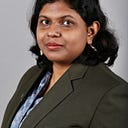News from the Summer: I edited a thing!
Hello dear readers,
The blog was on a hiatus for a few months because I have been working on multiple exciting projects that I hope to write about in the future. Besides, I have spent a lot of time in the summer and autumn swimming in ponds and training in a new movement form called Whacking which has done wonders for my well-being.
For today, I wanted to write about one of the most personally enriching projects that I did in the last few months. I have edited a series of eleven articles on “Water Pedagogies: From the Academy and Beyond” published by NICHE Canada that brings together scholars and activists on a diverse array of topics such as the necessity of fieldwork, training in alternative mapping practices, museum pedagogy, and environmental non-profits. I have also written an editorial reflection thinking about why we needed an interdisciplinary series of articles on water pedagogies, the contribution of the writers, and (my favorite part) the value of editorial labor. It was a pleasure to work with people from three continents and be in conversation with them over emails and Zoom. It is perhaps one of the most enriching things that I have ever done though at times it was difficult (I was sick twice and my laptop broke down before editorial deadlines). Despite all odds, the series was published in less than a year.
One of the reasons the series was published with NICHE Canada was because I appreciated the space that NICHE Canada made for graduate students to edit themed series. Second, it also pays contributors who are independent scholars, artists, and/or contingent faculty who do not have a regular income. Third, when my own formative experiences in research and teaching have been in India (I came to the US only in 2018) and since the series was developed with a particular eye to encourage contributors from artists, independent scholars, and activists, it was necessary that the series is published with a platform that encourages rigorous public scholarship and open access. The essays in the series do not always conform to the conventional genre expectations that academia demands and therefore I appreciate the opportunity that NICHE gave me as an editor. A number of people reading the series might not have institutional access to journal databases or cannot afford expensively priced editions of books. Publishing in this format does not solve all problems about access because one still needs internet access but this is a small step to making the spaces that we inhabit equitable.
The articles were chosen through a widely circulated open call for papers as opposed to closed or invited submissions only. I have seen too many gatekeeping practices in the academy and did not want to replicate that structure to the best of my ability. During the process, I realized that editing IS research. Whether we are researching to write a well-crafted call for papers or reading through the contributed articles and their various references, it includes familiarizing oneself with topics, people, and places that I might not necessarily know about.
Prior to this series, I have experience editing as the former managing editor of DHARTI’s Medium Blog and co-editing a series of newsletters for Project E-QUAL, an interdisciplinary research project on online learning and higher education. So, I am not new to the process of editing but I learn something about myself every time I edit. During the process of editing the Water Pedagogies series, I realized that I am good at identifying where the intellectual and political energy of work lies and enabling the writer to develop that in their work. This requires a lot of patience and time but I enjoyed the process because I was editing on a subject that I care a lot about: water and how we teach about water.
I hope that you will take some time to read the articles in the series and please spread the word/link among folks who might be interested in the subject. I would love to hear what you think.
Take care.
With love,
Sri
